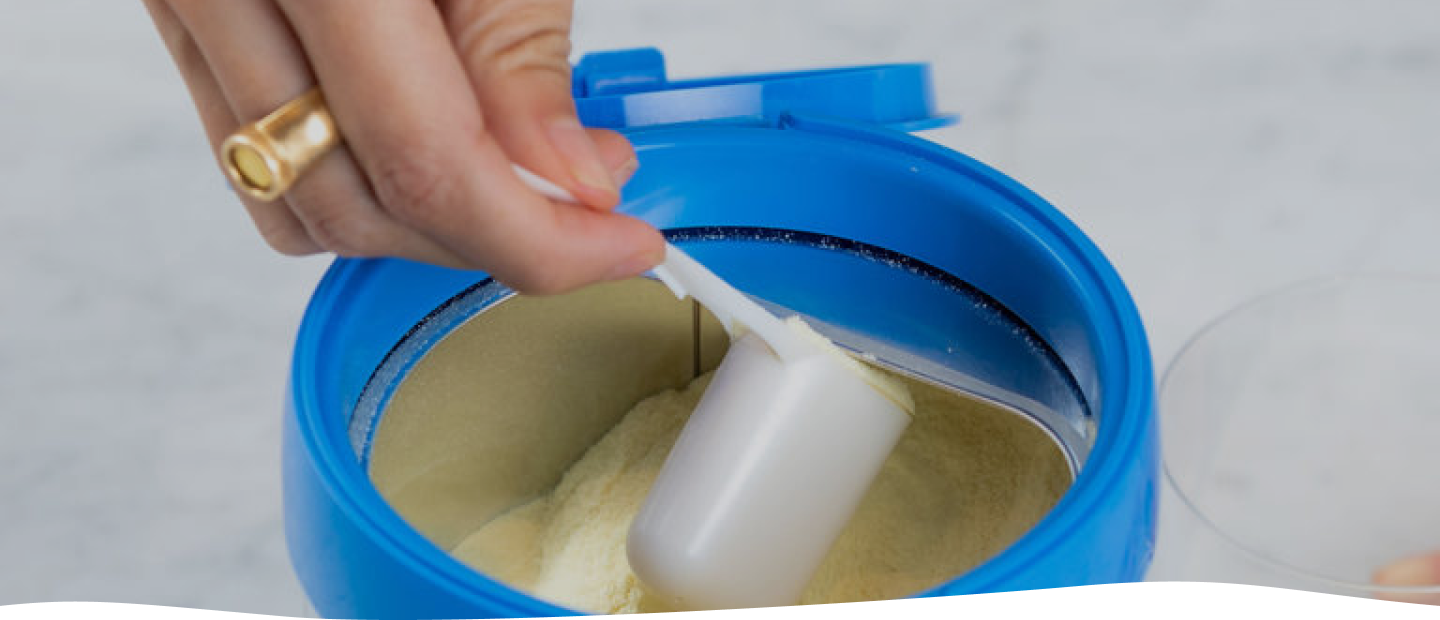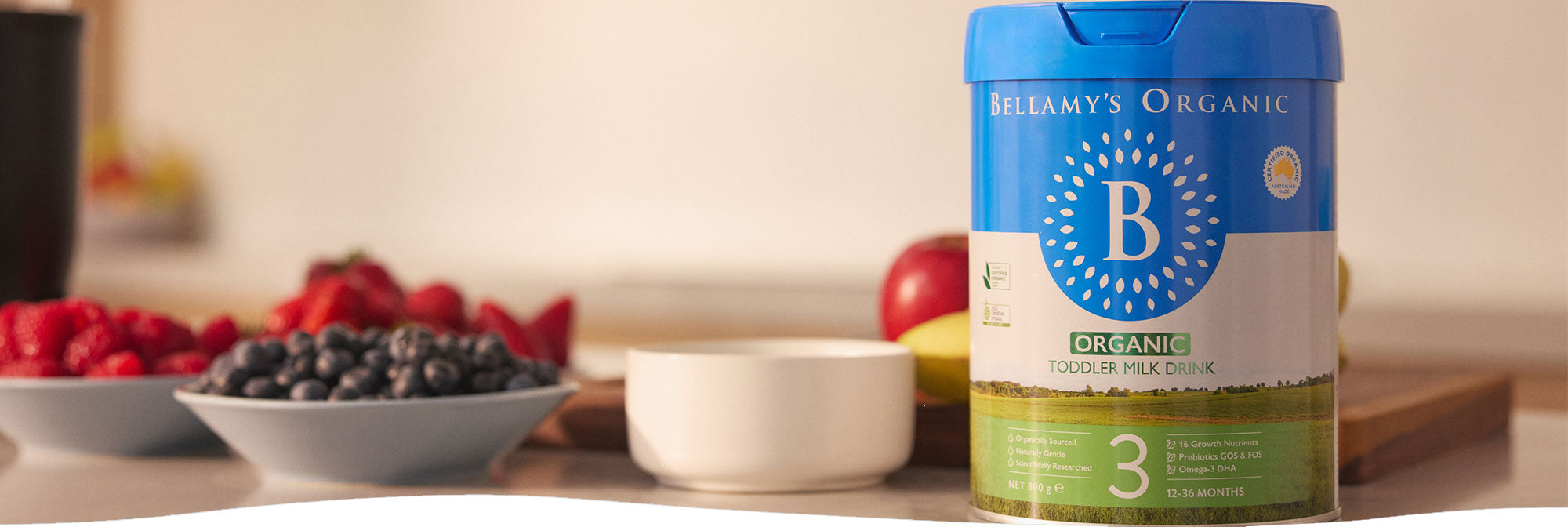How Much Do Bottle-Feeding Babies Drink?
The amount of formula your baby needs depends on their age and stage. Every baby is so different, and their needs for milk feeds will also vary from day to day. Some might have some feeds close together and others further apart.
Let your baby guide you
It’s recommended to let your baby guide you, because allowing your baby to self-regulate their own appetite will have positive effects on their eating behaviours when solids are started. Soon you’ll learn appetite cues for when your baby is hungry- for example making sucking noises or turning towards the bottle. Your baby will also let you know when they’ve had enough by stopping sucking or turning their head away. Not recognising these signs of hunger and fullness can lead to overfeeding and messing with your child’s ability to recognise they’re full. This is a problem that can lead to overeating and health problems later in life.
Milk volume guide
As a guide, between five days to three months, a full-term, healthy baby will need about 150 ml of prepared infant formula per kilogram of body weight, every day. For example, a baby who weighs 3.5 kg will need 525 ml of prepared infant formula each day.
From three to six months, this reduces to 120 ml of infant formula per kilogram of body weight each day. From six to 12 months, it falls again to between 90 and 120 ml of infant formula per kilogram of body weight each day. As the amount of solid food your baby eats increases, the total amount of milk feeds will also decrease.
To help you, Bellamy’s Organic provides a feeding guide on the can to see how much infant formula to make in a bottle and how many feeds per day. Our feeding volume provides on the higher end of feeding volumes, as we need to take into consideration a range of baby weights at certain ages. Remember this information is just a guide and is for exclusive formula feeding, so if your baby is being mixed fed, they won’t need as much formula.
If your baby has plenty of wet nappies (six or more per day), is experiencing consistent weight gain as monitored by your healthcare professional, and is thriving and active, these are good signs that your baby is getting enough formula.
Take comfort in knowing that your baby knows when they need to feed or not. They’ll let you know in their own way. You just have to read the signs!
Check out our formula range here.
Reference
1. National Health and Medical Research Council (2012) Infant Feeding Guidelines. Canberra.






































